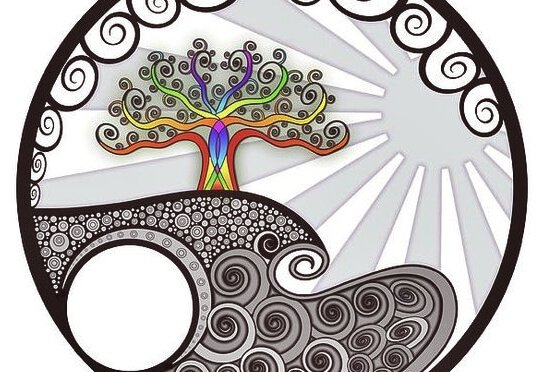When Your Priorities Are Clear, Decisions Are Easy to Make

When you’re clear on what your priorities are, it’s becomes much easier to make decisions. It’s like pushing away the branches of a thick forest to attempt to remember where your roots are. Roots which nourish your self-esteem in order to know what and who is a surplus in your life. This knowledge helps you act fearlessly and always according to the voice of your own heart.
This idea, that might seem quite obvious, actually encloses certain nuances which to reflect upon. We live in a world where a dimension is gaining ground in giant leaps: despair. This emotion often precedes a depressive state. One in which a person completely loses control of their life. It is like a spine that digs inside us, until it leaves us out of breath.
“He who thinks too much before making a decision will spend his whole life balancing on one foot.”
-Chinese proverb-
Despair make you lose control
That emotional weakness originates the second we start questioning the decisions we have made throughout our lives. Why do I invest so much time and effort in people who later betray me? Why do I worry so much about my job if they don’t appreciate me? Also, why didn’t I listen to my gut? Why didn’t I go for it when I had the opportunity?
It is the ideal moment to find new meaning. To self-explore our inner universes in search of that which gives our identities strength, energy and courage. In other words, our priorities.
Priorities, demands and the emotional brain
One of the biggest problems we have nowadays is our struggle to separate our own priorities from the demands of our environment. It’s not at all about rejecting some in order to exclusively accommodate others. Nobody can go about their life prioritizing themselves and turning a deaf ear to what their job, family or the rest of their surroundings demand of them. In truth, the key lies in maintaining a wise, harmonious and firm balance.
If we dedicate all of our time to meeting external demands, we will neglect ourselves and drift from that center of power. That delicate nucleus which we should care for and listen to every day: ourselves. The root of the problem resides in first visualizing our priorities in order to allow the demands to always move within that sphere. That is to say, nobody can ask anything of me that goes against my values. Anything which might harm my self-esteem or which might affect my physical or emotional integrity.
Now that this is clear, in our day-to-day we will always make decisions that go along this same line: along with our hearts. Or more so than our hearts, along with our emotional brains. Now, how can I achieve this? In order to better understand how we can achieve it, it’s worthwhile to first delve deeper into the cerebral mechanisms that accompany any decision-making process.
Emotional neurons and decision-making neurons
According to a study published in the magazine “Nature Neuroscience”, the cerebral structure which orchestrates our decision-making is the ortibofrontal cortex. This study reached a useful and interesting conclusion. Within this structure, two types of neurons can be found with very specific functions.
- The first type of neurons are the OFC, and their function is to offer an emotional value to each option we have to weigh before making a decision. They do so according to our previous experiences, our identity and our personality. It is like a previous mechanism which links directly to that which we call “intuition”. For example: Something tells me that I should turn down that job offer, because I know that it demands certain competences that don’t match my character.
- The second group of neurons are the cells of value. Here, an emotional component no longer exists. Instead, a practical attribution is applied. “I have to accept this job because I need a salary, because getting back into the work field is a priority right now.”
You need to have clear priorities in order to make more secure decisions
Something that we all know is that you have to take certain risks in life. Some of the decisions you make will be better than others. However, oftentimes, what seems at first to be completely insane can end up being the most logical and successful option of our existence. With all of this, what we are trying to say is something very simple. In order to be happy, you have to make decisions and hold yourself responsible for them at all times.
“If you have decisions to make, don’t hesitate. Accept the one which makes you happy.”

The feeling of hopelessness can be resolved precisely by connecting with our inner world. Most importantly, by bringing our priorities up to the surface. Priorities that no one and nobody should boycott. In order to achieve this, it’s worthwhile to keep 3 simple strategies in mind:
- Reduce. Enumerate on paper all of your current needs. You’ll notice that there are many. However, hidden among them are your authentic priorities: being happy, being respected, being well physically and emotionally. Reflect upon them.
- Compare. Once your priorities are clear, compare them to the demands of your environment. Are they in harmony? Is something being demanded of you that goes against your values? Is there anyone which disturbs your emotional health?
- Consolidate. Now that we have become aware that there are certain aspects that go against our priorities, we should act towards consolidating that balance between our inner priorities and external demands.
Lastly, once we have completed these steps, there’s only one small detail left to do. One that is marvelous and essential: plan out your life. Because if there’s something that having clear needs, values, dreams and hopes offers us is showing us that we can and should be the owners of our own destiny.
This text is provided for informational purposes only and does not replace consultation with a professional. If in doubt, consult your specialist.








